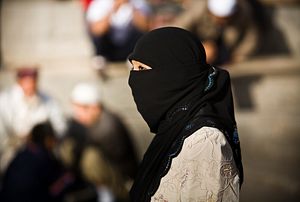China will need confidence and decisive action to fight against terrorist attacks. Such tactics can be compared to medical surgery. On the other hand, China should also refer to the principle of Chinese medicine: one must gradually treat the source of the illness. The authorities need to probe the possible existence of indifference and apathy among some Uyghur people to idea of “the big family of the Chinese nation.” Such apathy can hardly be overcome through economic benefits. An internal cohesion, or a type of “internal soft power,” is especially needed.
In fact, recent terrorist attacks have posed tremendous challenges to China’s intended peaceful rise and development and its internal strategy of constructing a harmonious society. These guerrilla-style terrorists suddenly launch brutal attacks in various public places. To a certain degree, they have some “achievements” — at least, their attacks have helped created an atmosphere of danger, tension, and insecurity in Chinese society (not only in Xinjiang, but also in all other provinces).
There have been diverse arguments about the causes of China’s domestic terrorist attacks. Some claim that the relatively backward economic situation among some Uyghur people is one of the main causes. Others pinpoint the involvement of religious extremist groups as the catalyst. However, poverty and religious extremism together are simply not enough to give a complete explanation. Those who have been involved in terrorist attacks in China might come from relatively less-developed areas but that does not necessarily mean that eradication of poverty is the only solution. On a global scale, those from the middle or upper classes, who have a solid economic status and good education, somehow may still have a complex attitude toward religious terrorism. The recent arrests of some well-off Uyghur officials and scholars have demonstrated this. Hence, the lack of sufficient social cohesion toward “the Chinese nation” among some Uyghur people could be another underlying cause.
Recently, along with its unprecedented economic growth, China has also enthusiastically boosted its domestic propaganda regarding the Chinese nation’s long history and splendid culture, such as Chinese characters, traditional Chinese opera, and Confucian traditions and rituals. However, minorities such as the Uyghur people might respond: Well, how does that relate to me? Although in its autonomous regions (and also other regions), China has intentionally adopted policies that are relatively favorable to minorities, the outcomes, especially over the years, are not always quite satisfactory – there could simply be a division between the majority Han ethnic group and minorities. The question is: Could there be a sort of passive or even active marginalization among China’s major minority groups?
Therefore, China especially needs domestic or “internal soft power” to sustain the intended harmonious co-existence among all ethnic groups, including the Han and the Uyghur in Xinjiang. Such “internal soft power” should not be limited to the simple idea of “the long history and splendid culture of the Chinese nation” (where the “Chinese nation” quite often is meant in the narrow sense of the Han). Rather, China’s internal soft power has to be more realistic, more substantial, and more urgent. It must be based on the incorruptible image of the government especially at the grassroots level, the effective and just enforcement of the law and various regulations, and a genuine public sharing of national economic growth among all national groups.
Such “internal soft power” could be one of the decisive factors in China’s “construction of a harmonious society.” Anti-terrorism will be a long-term campaign, requiring tremendous political, social and economic investments over a long period of time. Although building up “internal soft power” may not be a panacea to resolve the issue of terrorism, it may hit right on the underlying foundation of terrorism. Internal soft power, used correctly, has a chance to gradually mitigate the consequences of terrorist attacks at the strategic level.
































